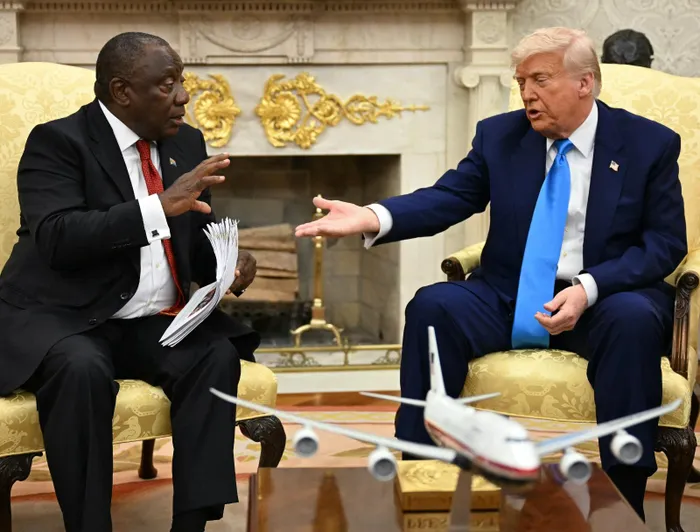What are tariffs and why is the US imposing them on South Africa?

South Africa is bracing for economic shock as a 30% tariff on all its exports to the United States takes effect on Friday.
Image: AFP
South Africa is bracing for economic shock as a 30% tariff on all its exports to the United States is set to take effect on Friday, unless a last-minute trade deal is reached.
This comes after US President Donald Trump announced last month that the tariffs were being imposed to address what he called long-standing trade imbalances and unfair market restrictions.
The move has sparked concern across key export sectors, with citrus growers, wine producers, and mining companies warning of severe financial losses and potential job cuts.
Despite President Cyril Ramaphosa and the Government of National Unity (GNU)'s best efforts to strike a deal, no agreement appears imminent. The Department of Trade and Industry further confirmed last week that it has not signed any substantive trade agreement with the Trump administration.
"We have not signed any substantive agreement yet. The document signed was a precedent condition document," Ministerial spokesperson Kaamil Alli said.
Trump has also cast doubt on his attendance at the upcoming G20 Summit in South Africa, citing what he described as “very bad policies” in the country, indicative of the ongoing strained relations between the two countries.
With the looming tariff hogging the headlines and exporters and economists warning about severe economic implications for South Africa if a deal is not reached, IOL takes a closer look at what tariffs are and why countries impose them.
What are tariffs?
According to Clarissa Hahn, an economist from Oxford Economics, tariffs are taxes imposed by a government on goods and services imported from other countries.
"Think of a tariff like an extra cost added to foreign products when they enter the country. They’re usually a percentage of the price of the goods. The level of the tariff will affect the significance of its impacts," she said.
Why do governments impose tariffs?
According to Hahn, governments impose tariffs to:
- Raise government revenue– tariffs serve as a source of income for governments.
- Protect domestic industries and correct trade imbalances– tariffs shelter domestic industries from foreign competition and discourage consumption of imported goods.
- Political tool for negotiations– tariffs can be used to apply pressure on the foreign government they are imposed on, as part of a trade negotiation or a political tool.
What impact do tariffs have on the economy imposing them?
Tariffs can help domestic industries by reducing foreign competition and boosting demand for local products. However, if these industries rely on imported materials, higher costs may increase production expenses and consumer prices.
What impact do tariffs have on the economies they are imposed on?
"In the country where tariffs are imposed on targeted industries will face lower export demand. As their goods have become relatively more expensive in the importing country, it will lead to lower sales and lost market share, as consumers switch to relatively cheaper domestic goods."
IOL News
mthobisi.nozulela@iol.co.za
Get your news on the go, click here to join the IOL News WhatsApp channel
Related Topics: